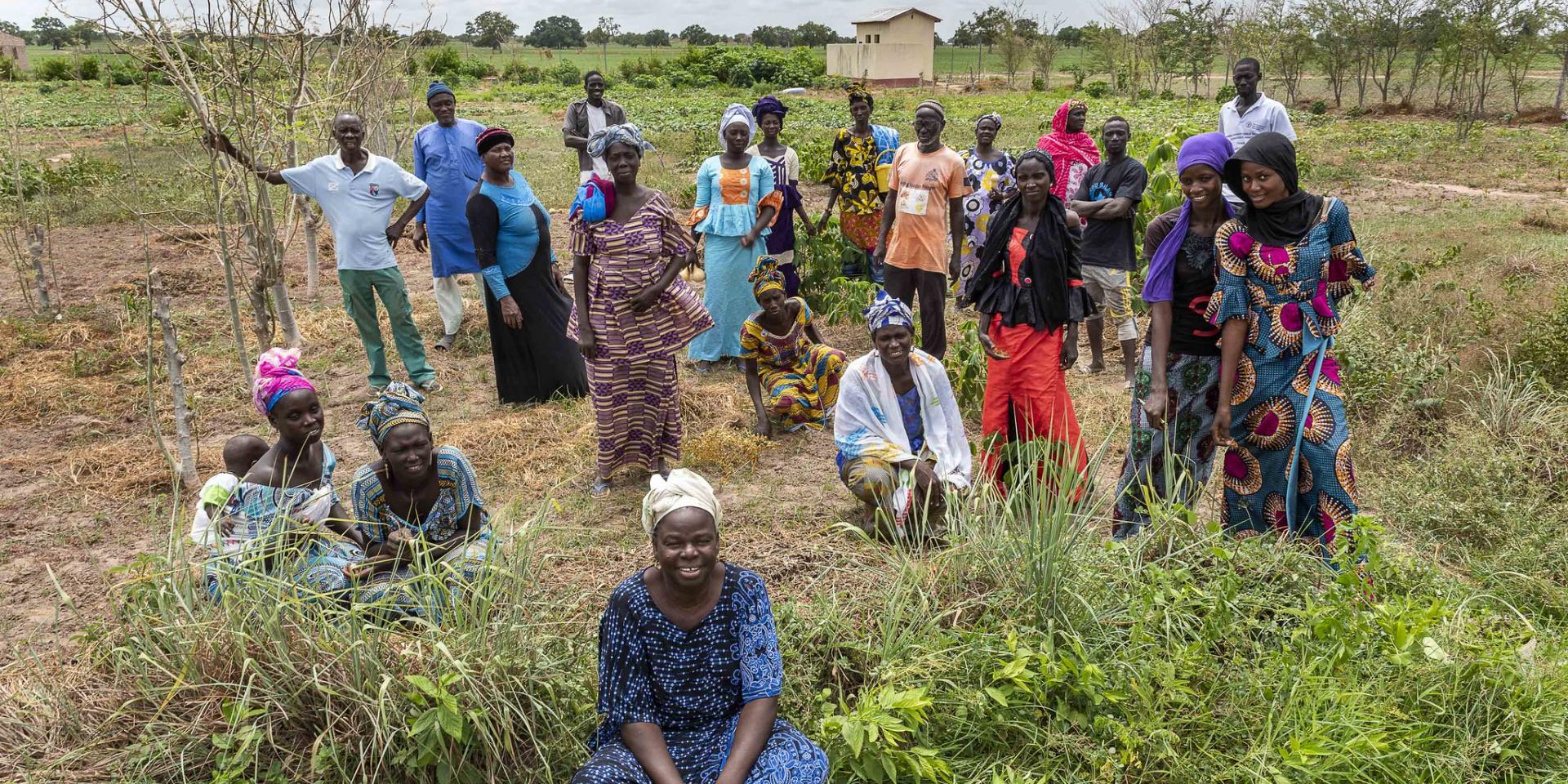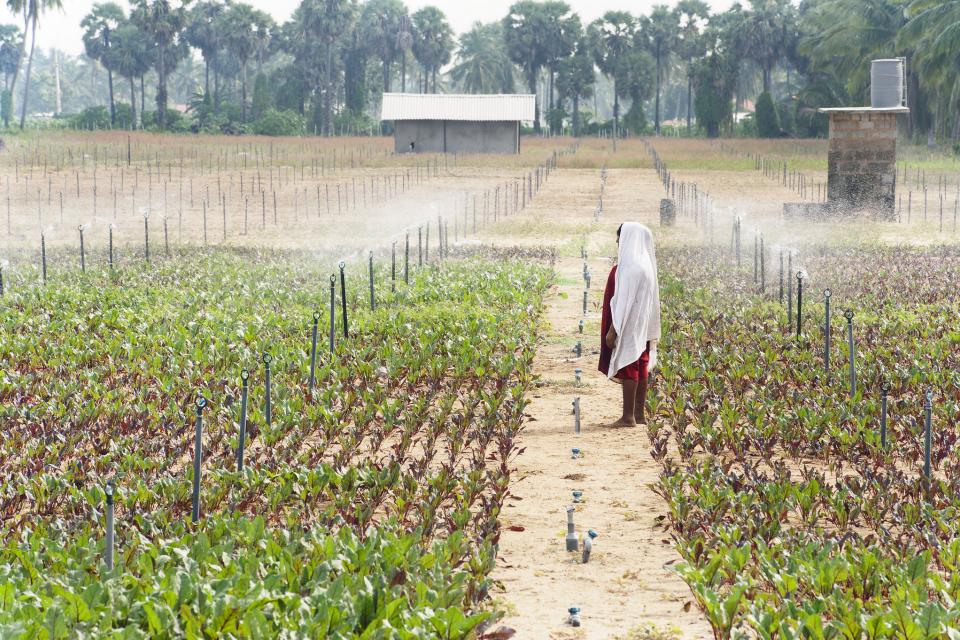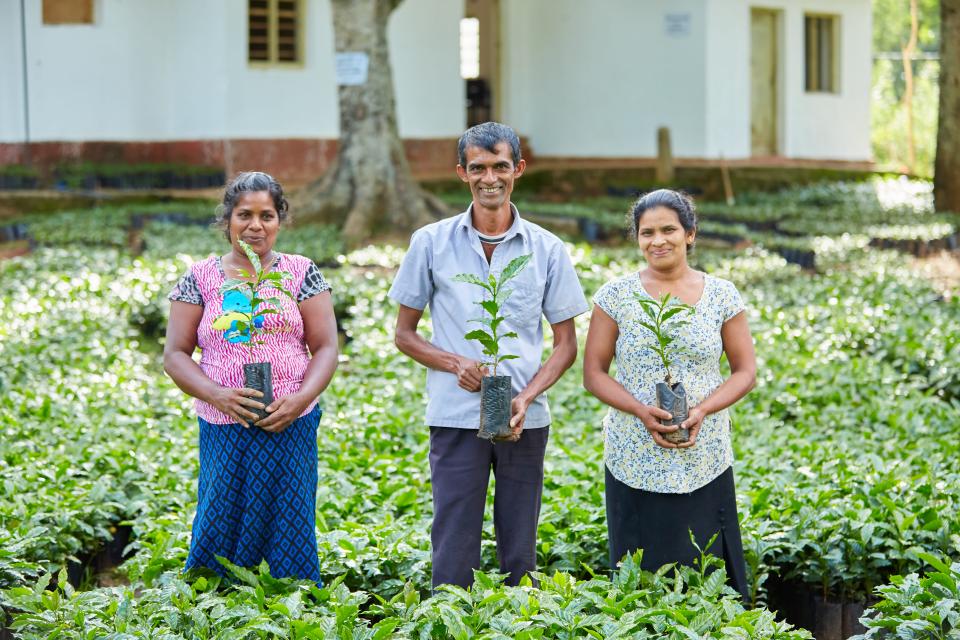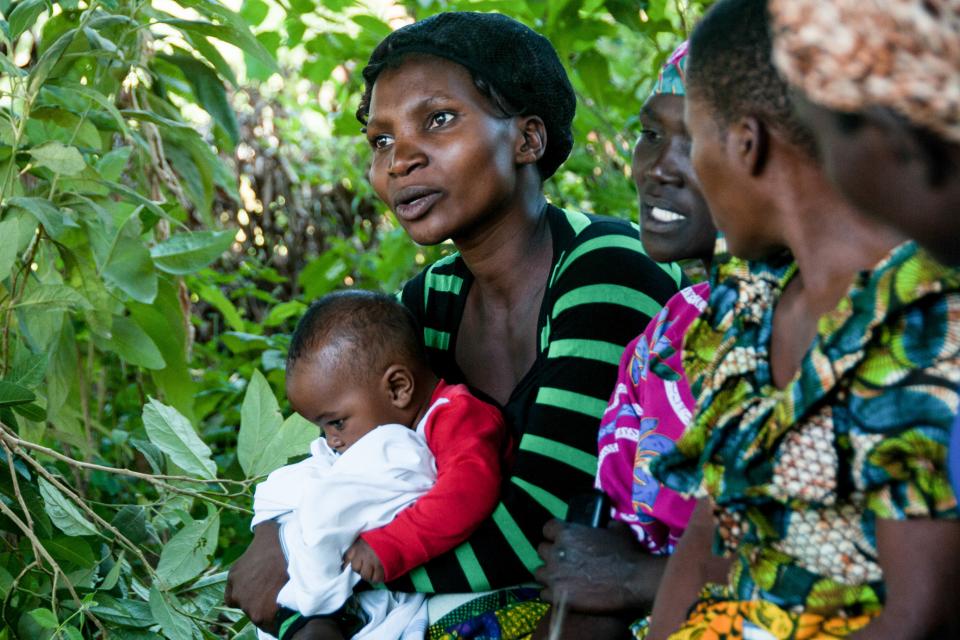Knowledge dissemination approaches targeting women increase their use of climate-smart agricultural practices
 Photo: Project Photos/Flickr.
Photo: Project Photos/Flickr.
Key Messages:
- Women are more likely to adopt improved CSA approaches when they are involved in decision-making and have equal access to information and resources. The odds can be improved through knowledge dissemination approaches that target women farmers and ensure their participation, such as Farmer Field Schools and training by extension services.
- Interventions can successfully increase both women and men farmers’ knowledge and adoption of specific CSA practices. However, further research reporting gender-disaggregated data and gender analysis is needed to determine what approaches are more effective at increasing adoption by women farmers.
The United Nations Food and Agriculture Organization (FAO) defines Climate Smart Agriculture (CSA) as “agriculture that sustainably increases productivity, enhances resilience, reduces greenhouse gases, and enhances achievement of national food security and development goals”.
Women farmers in many developing countries are particularly vulnerable to the impacts of climate change and lack the ability to adapt easily due to their limited access to resources such as land, capital and technology. As a result, they are less likely to be able to adopt CSA approaches that can reduce the negative impacts of climate change. Developing countries must prioritize investments in climate-smart agriculture to ensure that women farmers can access the resources they need to adapt to a changing climate.
We conducted a forthcoming systematic review of interventions to promote CSA approaches. The review aimed to determine the effectiveness of the interventions in increasing the adoption of CSA practices and decreasing the use of harmful agricultural practices by women farmers.
After systematic search and screening, eight impact evaluations (two randomized controlled trials and six quasi-experimental studies) were included. Overall, the evidence is concentrated in six countries: Bangladesh, China, Ghana, India, Kenya, Tanzania and Uganda.
Gender-responsive training increases women’s participation
Below we list highlights from the eight impact evaluations included in our review:
- All studies reported knowledge dissemination and capacity-building interventions.
- Four studies involved Farmer Field Schools or their adaptation as an intervention component, and two studies included video-mediated training and demonstration about botanical pesticide innovation and use.
- Only one study aimed at incorporating a gender-focused approach, by ensuring equal participation and representation of women in the training sessions.
- One study examined how weather and climate information services contribute to adopting CSA approaches in Ghana.
The findings from these studies suggest that gender-responsive training and education through Farmer Field Schools led to increased participation of women farmers. This involvement led to increased knowledge retention, improved decision-making and enhanced adoption of recommended CSA approaches. It was observed that when women farmers are actively involved in decision-making processes and have equal access to information and resources, they are more likely to adopt improved CSA approaches.
Knowledge dissemination targeting women makes a difference
Knowledge dissemination targeting women is important. The meta-analysis indicated that knowledge dissemination approaches have proven to be highly effective in enhancing farmers' knowledge and adoption of specific CSA approaches, including integrated pest management techniques, Stress-tolerant Rice Varieties and the use of botanical pesticides.
Women farmers who have participated in Farmer Field Schools or received support from agricultural extension services are more likely to adopt CSA approaches. These approaches, such as integrated pest management strategies, reduce their reliance on chemical pesticides and promoting sustainable farming practices. They have also proven instrumental in promoting farmers' adoption of climate-resilient rice varieties when they become aware of their benefits, such as resilience to climate change, protection of yields and reduced susceptibility to pests and diseases.
Integrating digital technologies and innovative approaches in knowledge dissemination can enhance the effectiveness of these approaches. Mobile applications and online platforms can help reach a wider audience, and remote sensing technologies can provide real-time information on climate conditions to help make decisions regarding the use of CSA practices.
These interventions successfully increased both women and men farmers' knowledge and subsequent adoption of specific CSA practices. However, further research is needed to determine if certain approaches are more effective for women than men. Further research should be conducted with a larger sample size and designed to consider gender-specific factors.
We did not find any studies which looked at the influence of other types of interventions, such as financial incentives and institutional arrangements.
Implication for research and policy
- Targeted efforts to enhance women farmers' awareness and knowledge about CSA practices and their benefits are effective at increasing their adoption. This review emphasizes the importance of developing gender-responsive training, information, education, and communication material and providing access to women farmers. Extension service providers need to be trained to perform this function as well. Practical and hands-on approaches like Farmer Field Schools are effective and should be preferred over classroom training.
- A poor evidence base due to a lack of available gender-disaggregated data and gender analysis forms a significant barrier to informing program design and investments.
- Further research focusing on the design of effective incentive systems and partnerships that promote CSA adoption is essential.
- There is a need to generate evidence on the long-term effects of adopting CSA approaches.
##
Suggested citation:
Saran, Ashrita and Puskur, Ranjitha. 2023. Knowledge dissemination approaches targeting women increase their use of climate-smart agricultural practices. CGIAR GENDER Impact Platform Evidence Explainer. Nairobi, Kenya: CGIAR GENDER Impact Platform.
References
PROTOCOL: Interventions promoting resilience through climate‐smart agricultural practices for women farmers: A systematic review
Enhancing farmers’ capacity for botanical pesticide innovation through video-mediated learning in Bangladesh
Ataharul Chowdhury, Helen Hambly Odame, Shirley Thompson & Michael Hauser (2015) Enhancing farmers’ capacity for botanical pesticide innovation through video-mediated learning in Bangladesh, International Journal of Agricultural Sustainability, 13:4, 326-349, DOI: 10.1080/14735903.2014.997461
Farmer field school and farmer knowledge acquisition in rice production: Experimental evaluation in China
Mingliang Guo, Xiangping Jia, Jikun Huang, Krishna B. Kumar, Nicholas E. Burger. 2015. Farmer field school and farmer knowledge acquisition in rice production: Experimental evaluation in China, Agriculture, Ecosystems & Environment, Volume 209, Pages 100-107. https://doi.org/10.1016/j.agee.2015.02.011.
Adoption and Dissemination Pathways for Climate-Smart Agriculture Technologies and Practices for Climate-Resilient Livelihoods in Lushoto, Northeast Tanzania
Nyasimi, Mary, Philip Kimeli, George Sayula, Maren Radeny, James Kinyangi, and Catherine Mungai. 2017. "Adoption and Dissemination Pathways for Climate-Smart Agriculture Technologies and Practices for Climate-Resilient Livelihoods in Lushoto, Northeast Tanzania" Climate 5, no. 3: 63. https://doi.org/10.3390/cli5030063
Summary for Policymakers
IPCC, 2022: Summary for Policymakers [P.R. Shukla, J. Skea, A. Reisinger, R. Slade, R. Fradera, M. Pathak, A. Al Khourdajie, M. Belkacemi, R. van Diemen, A. Hasija, G. Lisboa, S. Luz, J. Malley, D. McCollum, S. Some, P. Vyas, (eds.)]. In: Climate Change 2022: Mitigation of Climate Change. Contribution of Working Group III to the Sixth Assessment Report of the Intergovernmental Panel on Climate Change [P.R. Shukla, J. Skea, R. Slade, A. Al Khourdajie, R. van Diemen, D. McCollum, M. Pathak, S. Some, P. Vyas, R. Fradera, M. Belkacemi, A. Hasija, G. Lisboa, S. Luz, J. Malley, (eds.)]. Cambridge University Press, Cambridge, UK and New York, NY, USA. doi: 10.1017/9781009157926.001
Impact of integrated pest management farmer field schools on health, farming systems, the environment, and livelihoods of cotton growers in Southern India
Francesca Mancini, 2006. Impact of IPM Farmer Field Schools on the environment, health and livelihoods of cotton growers in Southern India. Doctoral thesis, Biological Farming Systems
Group, Wageningen University, The Netherlands.
ISBN 90-8504-388-3.
Climate-Smart Agriculture Sourcebook
FAO. 2013. Climate-Smart Agriculture Sourcebook. Rome.


